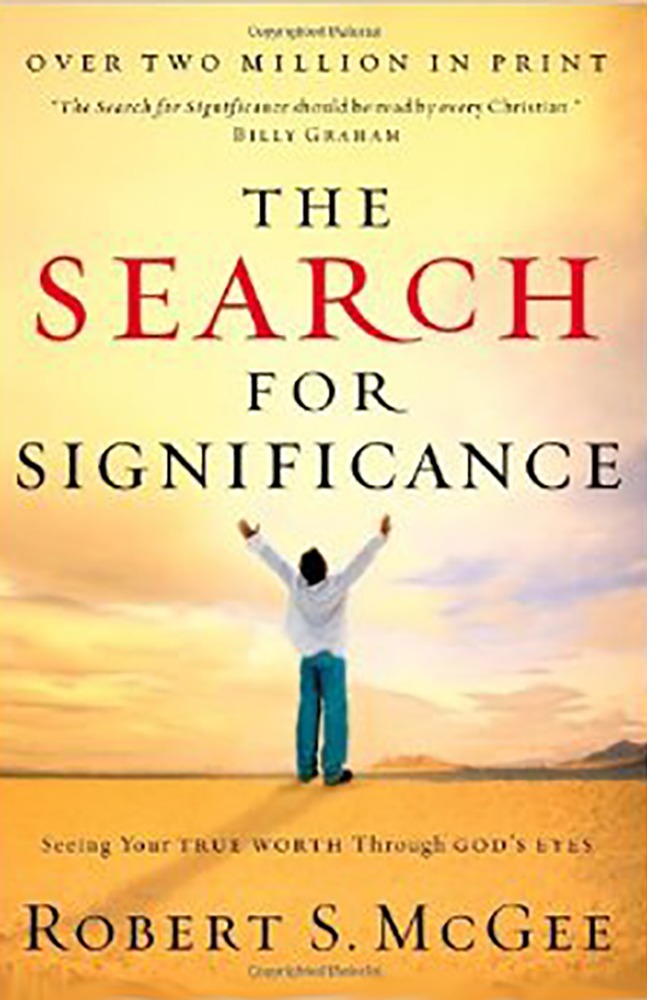The Search for Significance (Seeing Your True Worth through God’s Eyes)
By Robert S McGee
Publishing Information: W Publishing Group: 1998 (337 pages)
BOOK REVIEW
Reviewer: Patrina T. Boehringer
Review Date: March, 2015
When I selected this book for reading and review, I will honestly admit, I was out to debunk what I thought would be another book promoting humanistic philosophies of self-esteem. When I saw the title, red flags appeared. I assumed it was the kind of Christian self-help book what would promote the Laws of good works over the Gospel of Jesus’ redemption and forgiveness. Happily, I was mistaken – feeling great relief that Mr. McGee placed the sole emphasis on Christ. “…the point is clear that Christ is the source of our security; Christ is the basis of our worth; Christ is the only one who promises and never fails.” (p. 24)
We must understand that this hunger for self-worth is God-given and can only be satisfied by Him.
Search for Significance is well organized and developed. It begins by identifying the problem, “…we…seek our security and purpose from worldly sources: our goals, personal success, status, beauty, wealth, and the approval of others.” (p. ix) The book continues by identifying these false goals with a chapter dedicated for each fallacy. Mr. McGee clearly develops his book with a rich use of Gospel promises and as a bonus, helpful charts. The book also includes a workbook which leads the reader into the study of God’s Word; reinforcing God’s promises and emphasizing its importance in one’s life.
I found the author’s straight-forward approach in confronting our problems very insightful and refreshing. He encourages truthfulness and honesty at our deepest level. One section particularly caught my attention, “Many of us mistakenly believe that God doesn’t want us to be honest about our lives. We think that He will be upset with us if we tell Him how we really feel. But the Scriptures tell us that God does not want us to be superficial in our relationship with Him, with others, or in our lives.” (p. 3) In addition, he brilliantly identifies the yearning or emptiness felt by all people as he describes one couple’s problem, “Unfortunately, they were depending on each other to fill a void that could only be filled by their Creator.” (p. 8) Furthermore, at the end of chapter one: “We must understand that this hunger for self-worth is God-given and can only be satisfied by Him.” (p. 11)
If I were to make any changes they would be few but important. I do not prefer the term “self-esteem” and would change it to “completeness.” I understand that “self-esteem” is readily understood, but I believe it carries to much humanistic baggage. I would prefer “completeness” because through Christ we are restored to the fullness and forgiveness desired by God. As it is written in I John 4:12, “God lives in us and his love is made complete in us.”
Secondly I was concerned when in the introduction. Mr. McGee wrote, “When God gave me the essence of this book in 1980 while I was directing counseling centers in Houston, I never would have guessed that over the next twenty-three years it would be received as enthusiastically and change as many lives as it has.” Not only does this sound a bit pompous but claims some direct revelation from God. This is a dangerous statement as it might imply direct communication with God, which would be mysticism – at teaching which the author has rightly condemned in his book.
And thirdly, I was extremely pleased that the source of his writing was taken from Scripture, but sorry that Mr. McGee did not mention the use of the Holy Sacraments in supporting our faith in Christ.
I would recommend this book as a useful guide for those caught in the destructive cycle of self-condemnation or worldly success. The book carefully instructs one to examine our false beliefs against the wonderful promises of God’s complete and total love.

